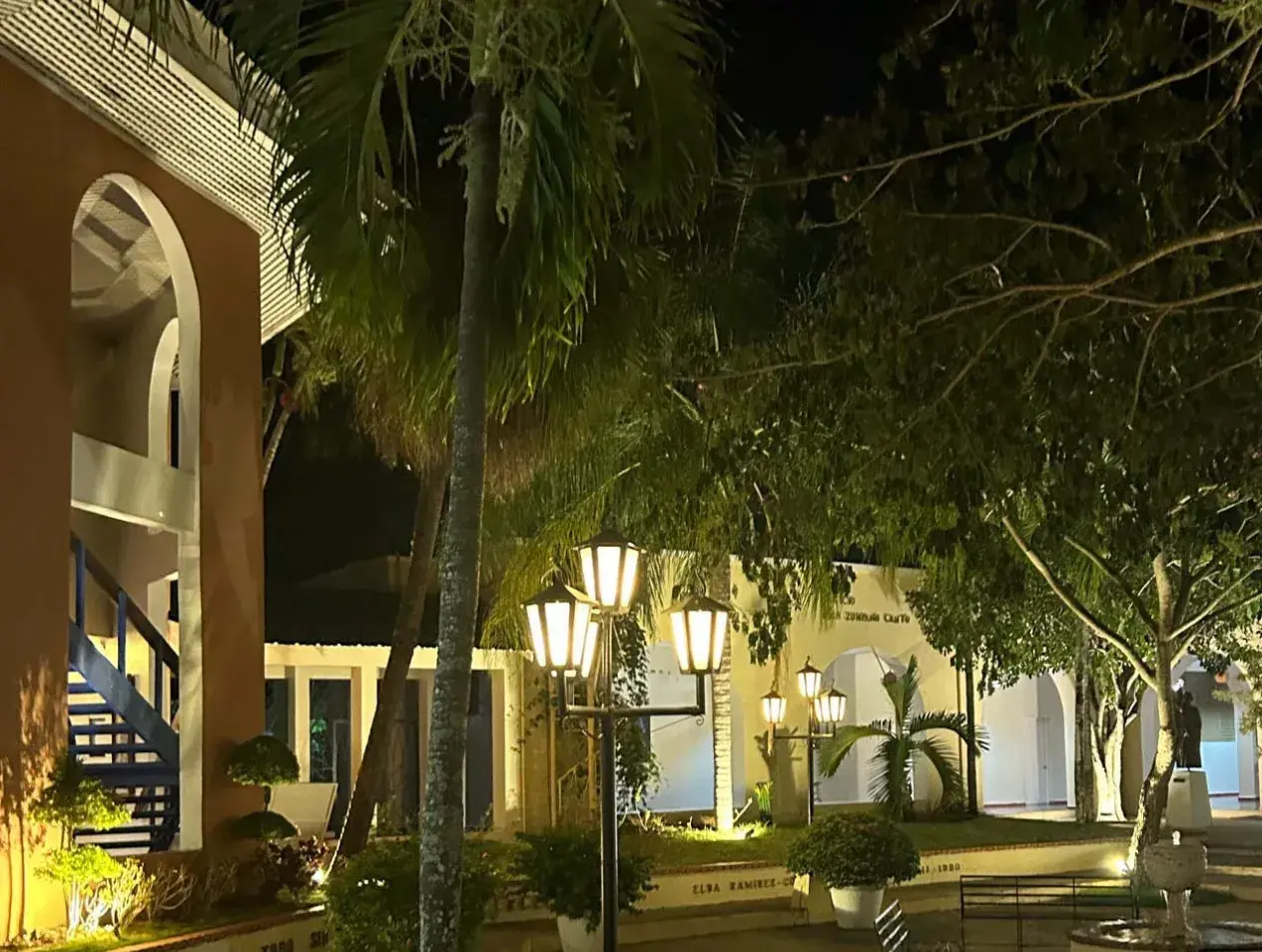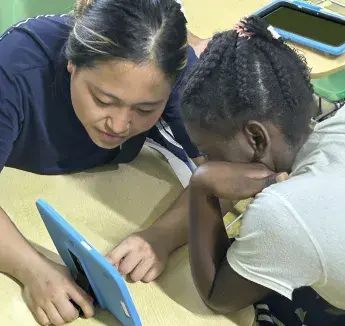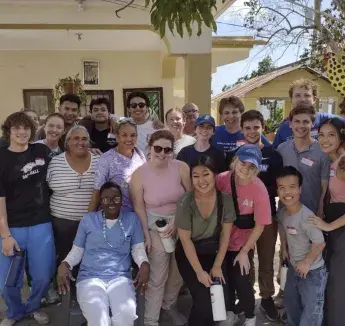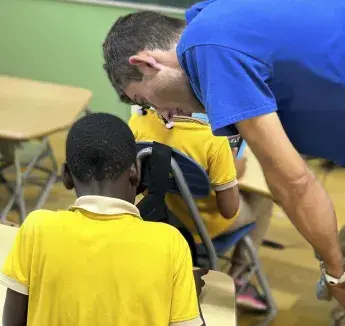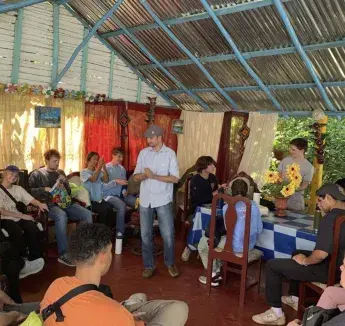
Practicum in International Development
Be an Agent of Change Through Business
In this service-oriented practicum, students collaborate on projects that positively impact the world. The BlueBox Project brings open-sourced educational materials to remote locations across the globe. Students also work on business plan development for nonprofits in partnership with Chronic Care International and the Institute for Latin American Concern.
As part of the practicum, students travel to the ILAC campus in the Dominican Republic over fall break. This trip provides a formative experience where students work with local populations and live the Jesuit value of being men and women for and with others.
Course Description
This interdisciplinary, service-learning course focuses on the deployment of educational technology and the development of entrepreneurial projects with a variety of partners in less economically developed countries. Students will enhance discipline-specific knowledge through their engagement with interdisciplinary teams and will travel to multiple sites to train teachers on the use of educational technology and develop entrepreneurial projects with community leaders. Students will also examine the cultural and economic realities of life in rural areas of the country and utilize feedback, dialogue and surveys from community visits to promote both a reflection on the experience, and a proposal of projects for future practicum participants.
Practicum in International Development (BIA 492, ECO 492 or ENT 492): 3 credits. Fall Semester.
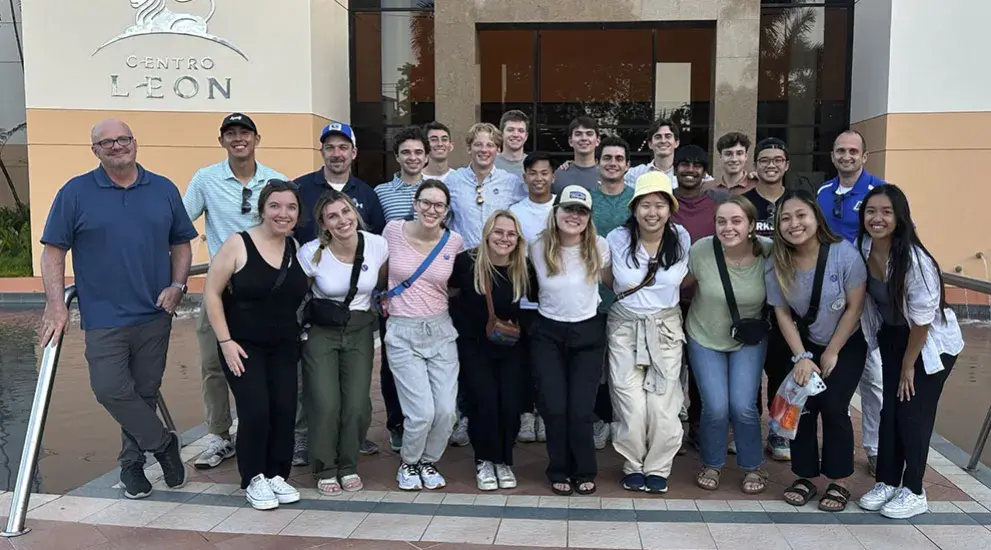

Jack Schaaf, BSBA’19, Finance and Economics
Senior Financial Analyst at Snap in Austin, Texas
Q: Did taking this course make you a more competitive candidate for post-graduation employment?
A: Absolutely. The advantage that practicums provide students is real-world, hands-on experience, which provides a great view into how different businesses operate, including real-time problem solving and working through complex tasks as a team, for instance. The practicum helped me develop skills such as thinking outside the box and viewing issues/topics from different viewpoints, which are both helpful in a business setting.
Abby Kleespie, BSBA'22, FinTech and Business Intelligence and Analytics
Corporate Finance Consultant at FTI in Denver, Colorado
Q: How did this practicum enhance your understanding of business development in emerging economies as well as your majors?
A: It served as a remarkable illustration of how businesses can be leveraged to enhance and uplift communities. I contributed to the technical aspects of the initiative, developing the BlueBox. Working with our professors, we wrote code and performed debugging to create the tool. This course offered me a hands-on learning experience that not only honed my technical skills but also presented an open canvas for innovative problem-solving techniques, all harnessed through the lens of BIA education.
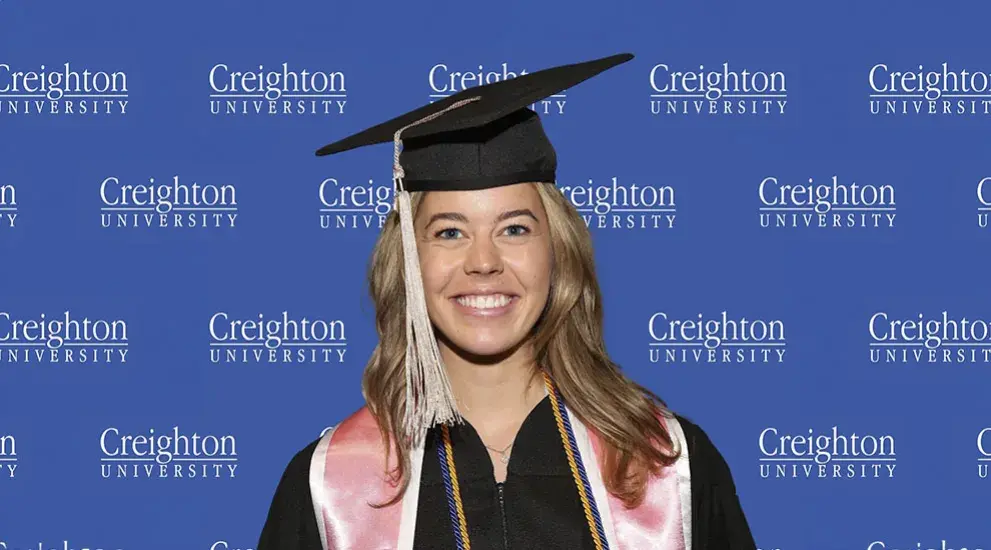
The BlueBox Project
The BlueBox Project seeks to enhance educational opportunity in the most remote areas of the world where traditional school materials are scarce, outdated or both. It achieves this through the BlueBox, a portable, small digital library containing preloaded, open-source educational material, including textbooks, Khan Academy videos (tutorial videos in math, science and many other subjects), Wikipedia for Education and more. Even without Internet, the material on the BlueBox is free and accessible to any device that connects to the BlueBox hotspot. Using either a wireless or a wired connection, communities, teachers and students can connect to the BlueBox and view the materials in any installed web browser on their device.
Interested students can apply for the Practicum in International Development at the BlueBox website.
First register and then submit your application during the spring semester prior to the course.
Applications are reviewed in March during the fall registration period. Acceptance into the course will be based on needs of the practicum with an intent of creating academic/skills-based diversity in the group. Preference will also be given to senior standing and personal motivation.
Questions about the practicum or the application process can be submitted to Dr. Charlie Braymen (charlesbraymen@creighton.edu), Dr. Lance Frazier (lancefrazier@creighton.edu), or Dr. Dustin Ormond (dustinormond@creighton.edu).
The Practicum in International Development is divided into three sections throughout the semester.
The first part is the pre-travel component, which consists of students dividing into technology and business tracks. The technology track primarily focuses on preparing the BlueBox for travel and prepping the business track students on what the BlueBox is and how to use it. The business track students will learn, discuss and present on topics pertaining to economic development, entrepreneurship, sustainable development goals, economic overview, visibility and ethics.
The second part is travel to the Dominican Republic over fall break. Students who will not be able to travel should not consider applying for the practicum.
The third part is the post-travel component, which consists of merging the two tracks together to develop business plans for CCI and identify and begin projects related to the advancement of The BlueBox Project and CCI initiatives.

